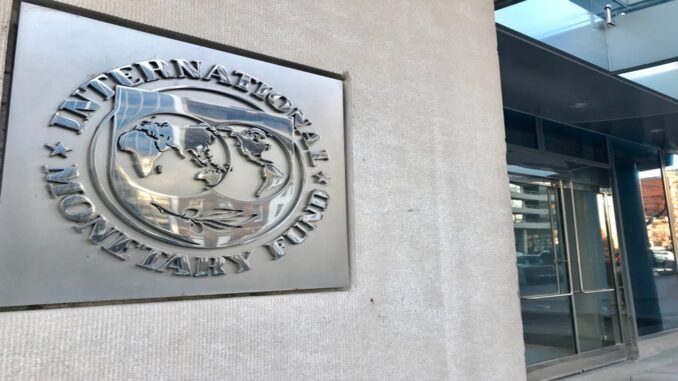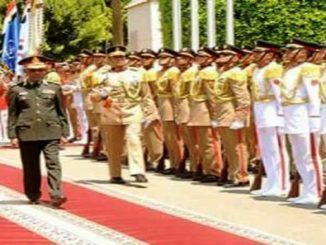
Ukraine conflict may curb Egypt’s tourism and increase its food import bill, pushing government to talks with the International Monetary Fund on funding.
Egypt is in talks with the International Monetary Fund on possible support that could include a loan, as shockwaves from the war in Ukraine add pressure on the North African country’s economy, according to a Bloomberg report by Mirette Magdy and Eric Martin.
The discussions, according to the report, are looking at several options including a so-called precautionary and liquidity line –credit that can be tapped if needed– or another form of financial assistance, according to people familiar with the matter. They asked not to be identified as the talks are confidential.
A non-financial agreement such as a so-called policy coordination instrument, where reforms are discussed and agreed, is also on the table, one of the people said. Egyptian officials are still in talks with the Washington-based lender over what may be the best option given the challenging global environment, the people said.
Egypt’s Ministry of Finance and central bank didn’t respond to requests for comment. In response to questions, the IMF’s mission chief for Egypt, Celine Allard, didn’t answer if the talks were on, but said that “we continue to closely monitor the situation and remain closely engaged with the Egyptian authorities.”
Egypt’s dollar bonds climbed Thursday, with the yield on the security due 2032 down three basis points at 9.95% as of 10:50 a.m. in London.

The outreach underscores the urgency of securing support at a time when a combination of soaring commodity and energy prices and a wave of global monetary tightening adds strain to the economy of one of the Middle East’s most indebted nations. Egypt had preliminary discussions on assistance before the Ukraine war.
Egyptian officials have acknowledged the invasion of Ukraine will have economic repercussions that the state is working to mitigate.
The world’s largest wheat importer, Egypt will see “reduced tourism inflows, higher food prices and greater financing challenges,” Fitch Ratings said this week. Russians and Ukrainians previously made up about a third of all tourism arrivals, while the war also “aggravates Egypt’s vulnerability to outflows of non-resident investment from its local-currency bond market,” it said.
Egypt has been a favorite in recent years for oversees portfolio investors who pumped billions of dollars into its local debt market. Those inflows, spurred by high real yields and previous agreements with the IMF, have been an important buffer during the pandemic as international tourism receipts have suffered.
Egypt in 2020 secured a $5.2 billion stand-by arrangement as well as $2.8 billion under the IMF’s Rapid Financing Instrument, helping authorities tackle the impact of the coronavirus pandemic.
The country embarked on a three-year IMF program in late 2016, agreeing on a $12 billion loan while steeply devaluing the currency and cutting subsidies. Those moves helped rekindle investor interest in the economy battered in the aftermath of the 2011 uprising that ousted President Hosni Mubarak.
Fitch this week said a new IMF program is among “the policy options available to the Egyptian authorities to shore up the country’s external position.” There’s also the possibility of Gulf Arab allies using a influx of funds from higher oil prices to support Egypt, it said.
The IMF’s managing director, Kristalina Georgieva, told a recent media round-table on Ukraine that “I worry for Egypt.”
“If we have a sustained high food and energy prices, how this is going to impact people in Egypt,” she said, according to a transcript. “And in that sense, we are already engaged in discussion with Egypt on how to target vulnerable populations and vulnerable businesses.”



